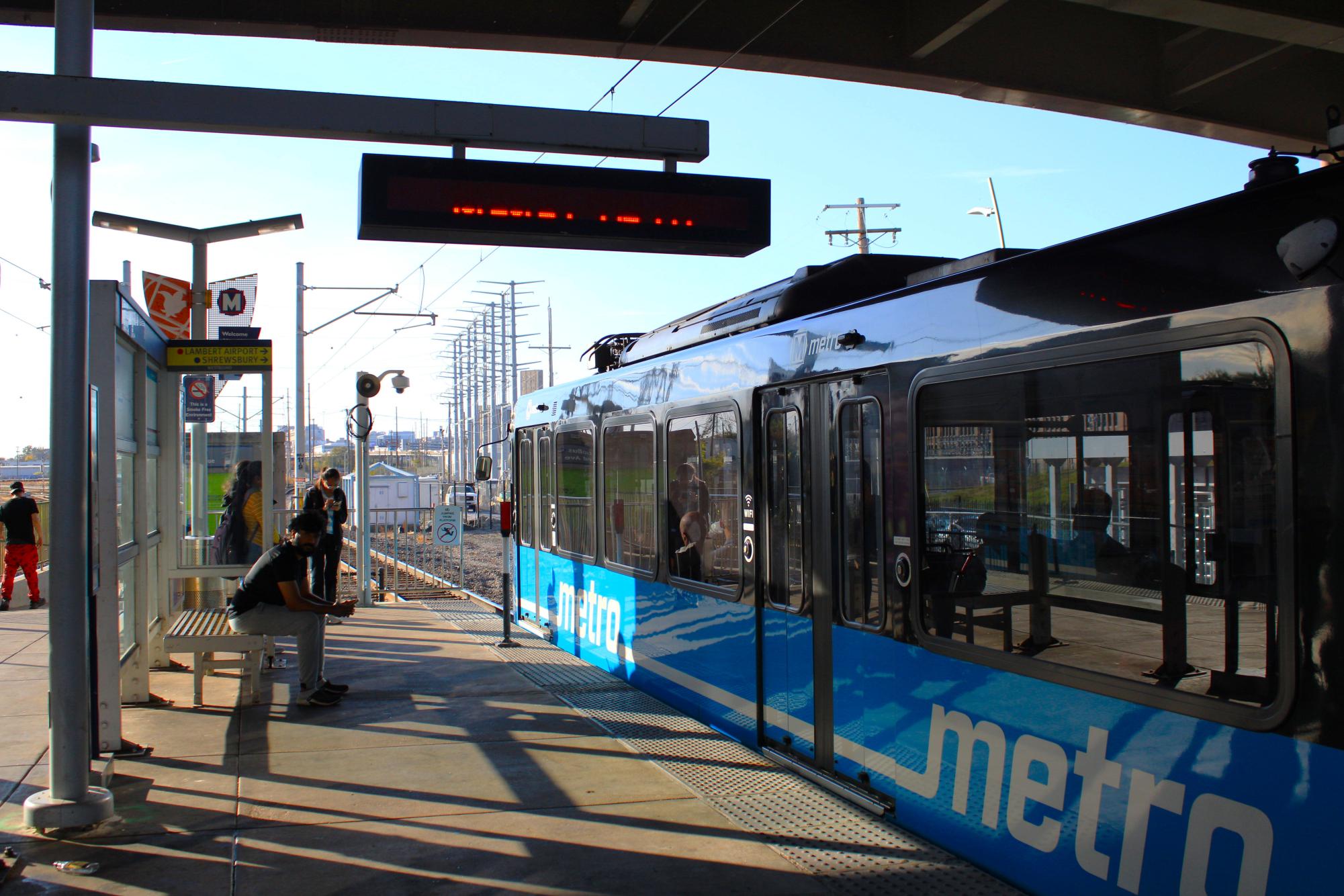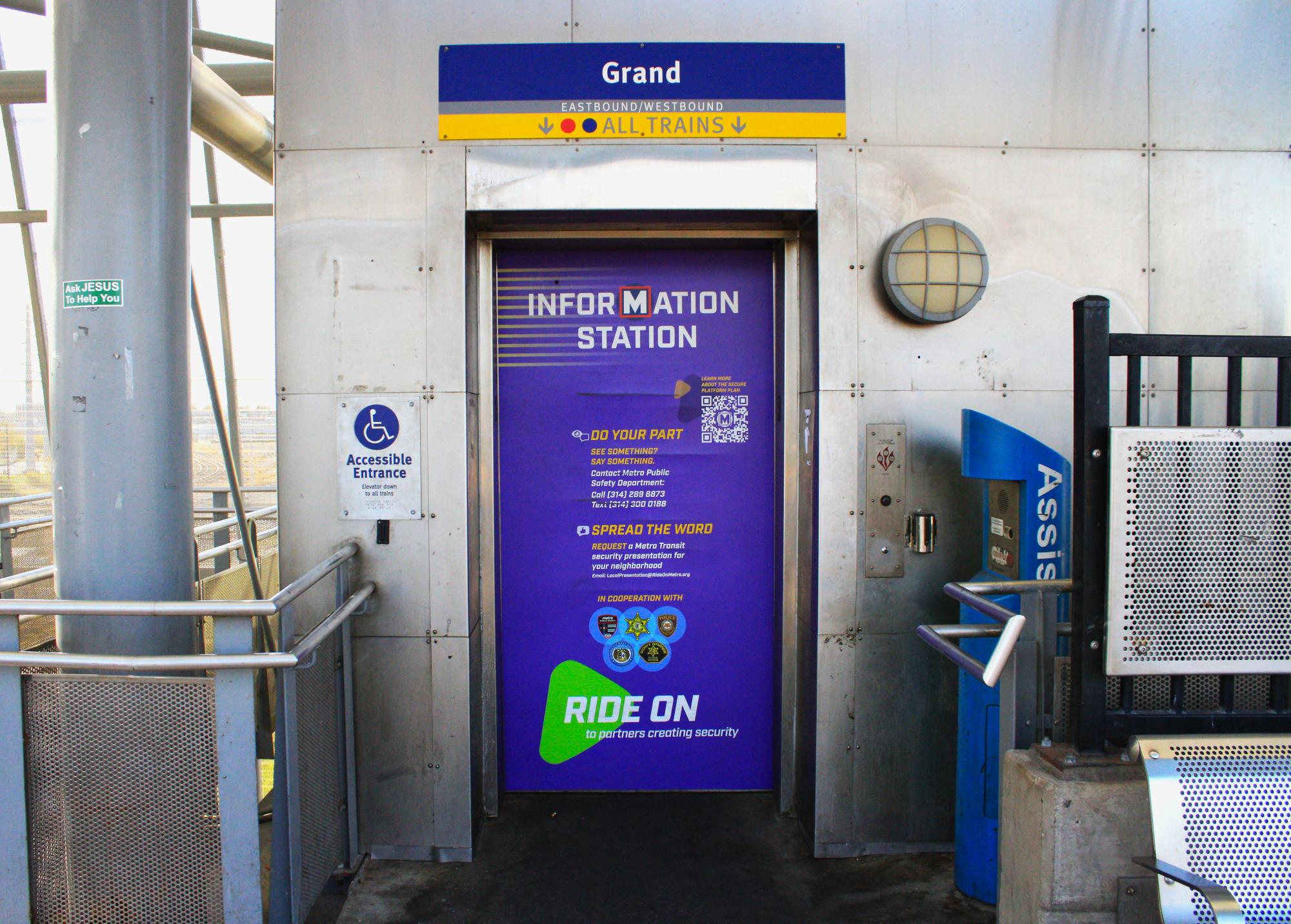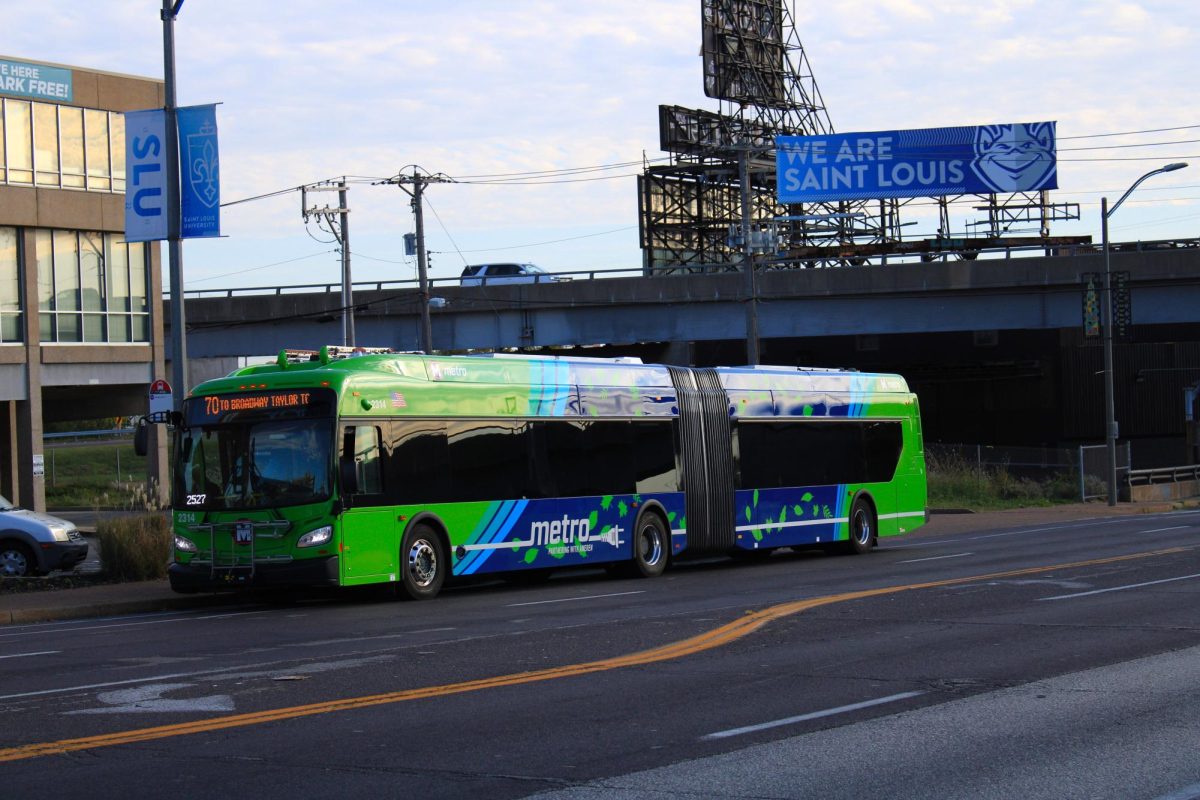The number of Metro Transit passes available for Saint Louis University students has been reduced from 2,000 to 930 in the 2024-25 school year. Last academic year, SLU provided 2,000 Metro passes for full-time students. However, the university lost more than $68,200 when 1,100 passes were never collected.
This year, the university has implemented a 53% reduction, designating only 930 passes to be available for students. Event Services at the Busch Student Center purchased the passes at $62 each for the academic year.
SLU purchased the passes in partnership with Bi-State Development (BSD) which operates Metro Transit. Together, BSD and Citizens for Modern Transit (CMT) manage the Student U-Pass program that allows full-time students from several universities, including SLU, to ride the MetroLink and MetroBus for free, year-round.
Students were able to request a pass through a university Google Form that was active between Aug. 28 and mid-Sept. and supported 930 requests. The form reached its request capacity in about two weeks, leaving students who still want a pass without one.
Ashley Lets, a senior business technology management student, has been an avid public transportation user since 2020. She said she is struggling day-to-day because the complimentary passes “ran out really quickly” this semester, and she was unable to obtain one in time.
Ben Perlman, the assistant vice president of student engagement, said that the university delegated 930 Metro passes to be available for students because they did not want to buy a surplus of passes that would be left unclaimed.
“We’re trying to be stewards of the university funds, which are student funds at the end of the day,” Perlman said.
Currently, 426 out of the 930 students who requested a Metro pass via the Google Form have picked them up from the designated locations. According to the SLU enrollment data, there are 8,669 undergraduate students enrolled in the fall 2024 semester. The 930 Metro pass requests they put in this year make up 10.73% of the entire undergraduate population. That is just over a 10th of all undergraduates that have unlimited access to the
MetroLink and buses through the passes provided by SLU. While only a small portion of the student body would have free public transportation access, David Young, the director of the Busch Student Center, and Perlman believe that Metro passes may not be a necessity for all students.
“Maybe students don’t want them, we have a lot of students who bring cars to campus,” Perlman said.

Lets, the senior student, however, mainly utilized public transportation instead of a vehicle. Last semester, she mostly used the pass to get to and from her job and to explore more of the city. As an intern at the Crime Victim Center, she had hoped to use public transit to get to tabling events in the city that her job would host.
Now, her options are buying a discounted $175 student semester pass from Metro Transit, or buying the $78
a month pass which the senior said “is exorbitantly expensive, so I’m trying to save up for that.”
Perlman explained that some students mistakenly thought the passes were for SLU shuttles, which are free, and opted out once the clarification was made.
“I think first-year students were confused about what they were. Housing changed the language on the form to be clear about what they were. So, we hope that helps people understand.” Perlman said.
Both Young and Perlman indicated that this misunderstanding may have contributed to the low turnout of students picking up the Metro passes.
“We want to try to maximize the efficiency of the program, but we need students to know what they are for and then come get them in time because it’s a sunk cost for students if they don’t,” Perlman said. “I’m not sure the demand is there. I’m not sure the energy is there for public transportation.”
Both administrators said they believe most students bring their cars on campus and if they want to get anywhere, they will drive or catch an Uber.
Young said that he thinks students are not seeing the opportunity to utilize Metro passes. The two said that they think students prioritize other modes of transportation first before considering utilizing the Metro Transit.
Lets meanwhile, prioritize taking the Metro. Now, she occasionally uses her mother’s car since “gas is expensive” and mostly pays for fares individually to use public transit which she said has been a “financial burden.”

Young and Perlman noted that there are many walkable businesses and areas around campus that students would not need a Metro pass to get to. The U-Pass program was utilized more years ago when there were not so many accessible establishments around campus like Fresh Thyme, Walgreens and CVS.
Both Young and Perlman consider a lack of data on student Metro pass use to be a barrier to their availability. Young said there’s no data that can inform SLU’s Event Services about why students would want or need a Metro pass. Perlman said that they would most likely be able to buy more passes if they could “justify the funding” with data about the student Metro pass use provided by BSD.
“That’s the other challenge, right, is that BSD doesn’t provide us any data. We can’t track it,” Perlman said.
Young also mentioned that it is difficult to know where students go when they use public transportation.
“I’m not sure where they’re going. They could be going to South Grand, or they could be going to Brentwood,” Young said. Perlman said that analytics would benefit BSD because they could use them to request additional federal grants.
Starting in the 2024-25 academic year, Event Services will use online forms to track the number of residential and commuter students who use Metro passes.
“It’s definitely been beneficial [to have a Metro pass] because it allows me to commute to my job and school and to be involved in various methods of community engagement,” Lets said.
The Google Form for obtaining Metro passes reopened on Sept. 20 and remains open to allow more students to request a pass.










